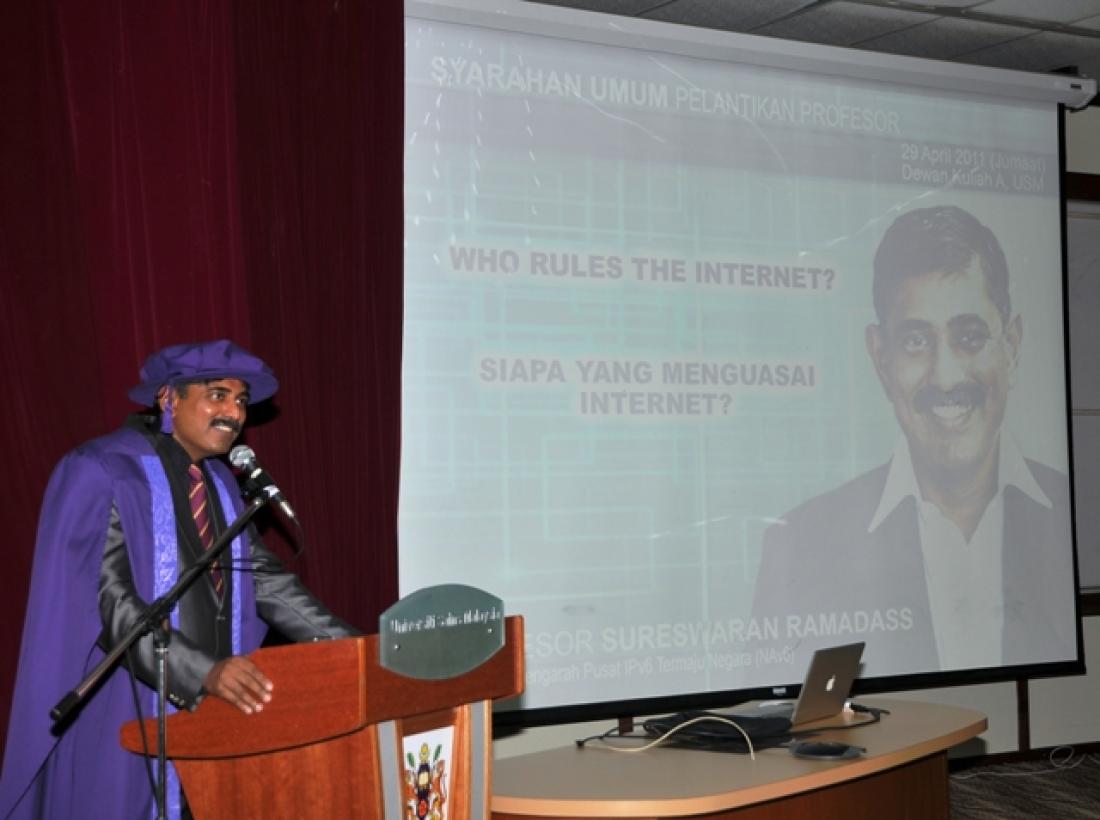ASEAN countries should be allowed to manage the growth and development of the internet including the distribution of internet addresses in their own way
Presently, the distribution of IP addresses in ASEAN countries is managed by an external agency based in Australia and is regarded as having failed to understand the needs of the ASEAN countries that subscribe to the service.
According to Prof. Sureswaran Ramadas, the provision of IP addresses for ASEAN countries is managed by the Asia Pacific Network Information Centre (APNIC) which is based in Australia and all ASEAN countries have to pay the company for the addresses.
Although APNIC receives payment, it is unable to provide proper service to ASEAN countries for various reasons. One of them is the failure of APNIC to fulfil local needs and contribute to the economic development of ASEAN countries that have paid for the service.
“Thus, it is only right that internet services in ASEAN countries are managed locally through the establishment of the Regional Internet Registration (RIR), based in the ASEAN country itself and which can understand the needs of these countries,” he said while presenting his Professorial Public Lecture titled ‘Who Rules the Internet?’(‘Siapa Yang Menguasai Internet?’).
According to Prof. Sureswaran, the RIR that is currently in operation supervises the distribution and registration of internet addresses in ASEAN countries. As this RIR does not have executive committee members from ASEAN countries, it has created a vacuum in their internet development.
“Thus, ASEAN countries could consider the need to establish their own RIR, perhaps known as ASEANNIC so that ASEAN countries could reap benefits that match the payments being made to RIR.
Prof. Sureswaran Ramadass is currently the Director of the National Advanced IPv6 Centre, Universiti Sains Malaysia. He received his Bachelor of Science degree in Electrical Engineering/Computer Engineering (Magna Cum Laude) and a Master’s in the same course from the University of Miami, Florida in 1987 and 1990 respectively. He then received his Ph.D in Computer Science from Universiti Sains Malaysia in 2000.
He is well-known for his research on internet networking which he started when he began serving in USM in 1992. He was made Wireless World Research Forum Fellow in April 2010 for his contributions in Next Generation Networks and received the National Academic Leader (Tokoh Negara) Award in 2008 from the Minister of Higher Education, Malaysia.
In 2009 and 2007, he received the Malaysian Innovation Award from the Prime Minister of Malaysia and the Minister of Science and Technology, Malaysia for his contributions towards developing network security monitoring as well as the development of Multimedia Conferencing Systems.
Prof. Sureswaran is also responsible for the successful listing of Mlabs System Berhad, a high- technology video conferencing company in the Malaysian Stock Exchange in 2005. Mlabs is the first university-based company to be listed in Malaysia.
He was the Chairman of the Research Steering Committee for Malaysian Research and Education Network (MYREN) and is the IPV6 Domain Head for MYREN. He was also the Chairman for Asia Pacific IPv6 Task Force, involved in promoting IPv6 globally. To date, Prof. Sureswaran has published more than 110 journals and research papers, over 12 patents and is involved in various development programmes, conferences, seminars and workshops related to network research. He has also received more than USD7 million in research funding and grants from various organizations towards development of network research.
Prof. Ahmad Shukri Mustapa Kamal, Deputy Vice-Chancellor (Academic and International Affairs), USM was also present at the event.



